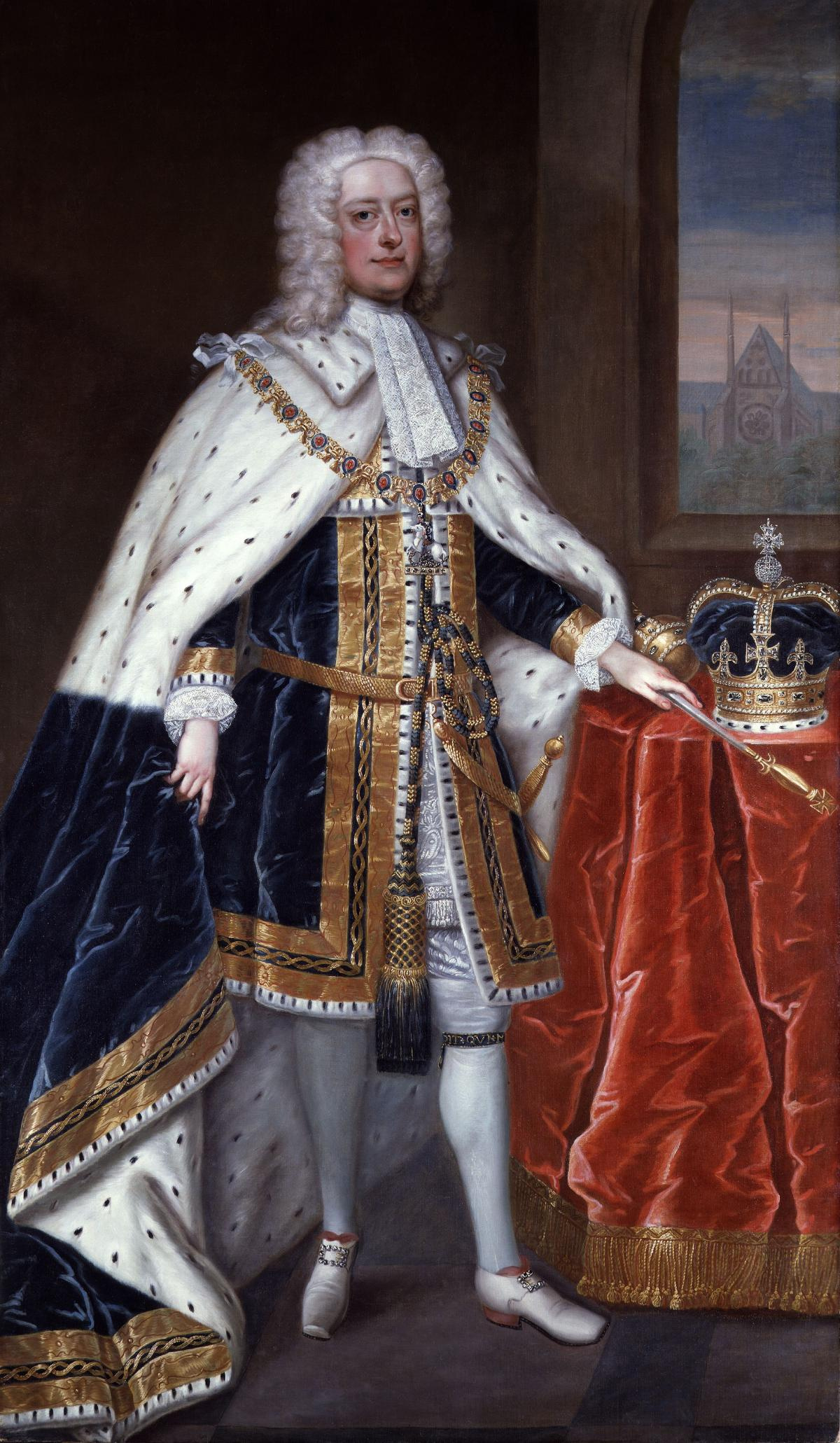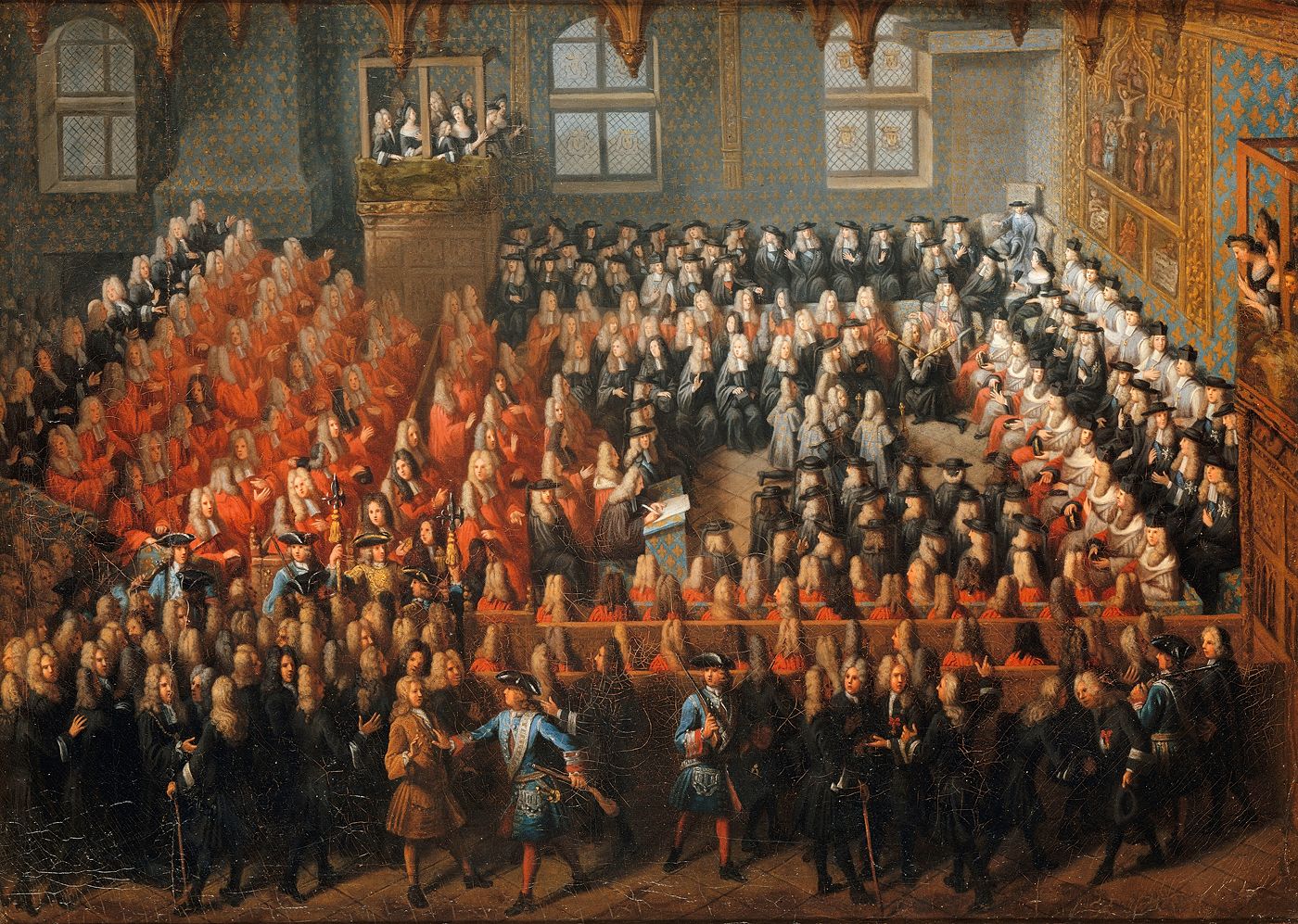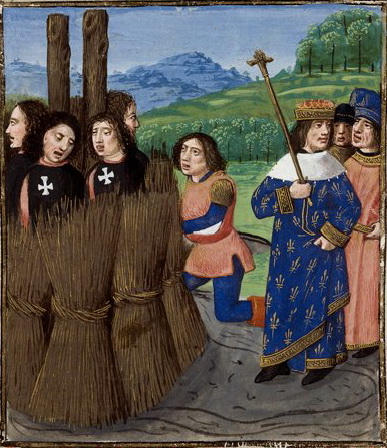|
War Of Saint-Sardos
The War of Saint-Sardos was a short war fought between the Kingdom of England and the Kingdom of France in 1324 during which the French invaded the English Duchy of Aquitaine. The war was a clear defeat for the English and led indirectly to the overthrow of Edward II of England. It can also be seen as one of the precursors to the Hundred Years' War. Background During the reign of King Philip IV of France and his sons, France's monarchy gradually expanded its authority, as the power of the king grew at the expense of the nobles. One of the chief tools in this process was the Parlement of Paris, which allowed people to appeal the decisions of lower courts. During these appeals their possessions were under the direct protection of the Crown, weakening one of the most important privileges of the nobility: that of jurisdiction over their own lands. One of those who felt this encroachment the most was Edward II, King of England and Duke of Aquitaine. As Duke of Aquitaine, he ruled Ga ... [...More Info...] [...Related Items...] OR: [Wikipedia] [Google] [Baidu] |
Duchy Of Aquitaine
The Duchy of Aquitaine (, ; , ) was a historical fiefdom located in the western, central, and southern areas of present-day France, south of the river Loire. The full extent of the duchy, as well as its name, fluctuated greatly over the centuries and at times comprised much of what is now southwestern (including Gascony) and central France. The territory originated in 507 as a constituent kingdom of the Frankish kingdom after the Salian Franks conquered Aquitaine following the Battle of Vouillé; its boundaries were ultimately a combination of the Roman provinces of . As a duchy, it broke up after the conquest of the independent Aquitanian duchy of Waiofar, going on to become a sub-kingdom within the Carolingian Empire. It was then absorbed by West Francia after the partition of Verdun in 843 and soon reappeared as a duchy under West Francia. In 1153, an enlarged Aquitaine pledged loyalty to the Angevin kings of England. As a result, a rivalry emerged between the French monar ... [...More Info...] [...Related Items...] OR: [Wikipedia] [Google] [Baidu] |
Montpezat, Lot-et-Garonne
Montpezat (; ) is a commune in the Lot-et-Garonne department in south-western France. See also *Communes of the Lot-et-Garonne department The following is a list of the 319 communes of the French department of Lot-et-Garonne. The communes cooperate in the following intercommunalities (as of 2025): References Communes of Lot-et-Garonne {{LotGaronne-geo-stub ...[...More Info...] [...Related Items...] OR: [Wikipedia] [Google] [Baidu] |
Vassal
A vassal or liege subject is a person regarded as having a mutual obligation to a lord or monarch, in the context of the feudal system in medieval Europe. While the subordinate party is called a vassal, the dominant party is called a suzerain. The rights and obligations of a vassal are called vassalage, while the rights and obligations of a suzerain are called suzerainty. The obligations of a vassal often included military support by knights in exchange for certain privileges, usually including land held as a tenant or fief. The term is also applied to similar arrangements in other feudal societies. In contrast, fealty (''fidelitas'') was sworn, unconditional loyalty to a monarch. European vassalage In fully developed vassalage, the lord and the vassal would take part in a commendation ceremony composed of two parts, the Homage (feudal), homage and the fealty, including the use of Christian sacraments to show its sacred importance. According to Eginhard's brief description, ... [...More Info...] [...Related Items...] OR: [Wikipedia] [Google] [Baidu] |
Gascony
Gascony (; ) was a province of the southwestern Kingdom of France that succeeded the Duchy of Gascony (602–1453). From the 17th century until the French Revolution (1789–1799), it was part of the combined Province of Guyenne and Gascony. The region is vaguely defined, and the distinction between Guyenne and Gascony is unclear; by some they are seen to overlap, while others consider Gascony a part of Guyenne. Most definitions put Gascony east and south of Bordeaux. It is currently divided between the region of Nouvelle-Aquitaine (departments of Landes, Pyrénées-Atlantiques, southwestern Gironde, and southern Lot-et-Garonne) and the region of Occitanie (departments of Gers, Hautes-Pyrénées, southwestern Tarn-et-Garonne, and western Haute-Garonne). Gascony was historically inhabited by Basque-related people who appear to have spoken a language similar to Basque. The name Gascony comes from the same root as the word Basque (see Wasconia below). From the Middle Ag ... [...More Info...] [...Related Items...] OR: [Wikipedia] [Google] [Baidu] |
Duke Of Aquitaine
The duke of Aquitaine (, , ) was the ruler of the medieval region of Aquitaine (not to be confused with modern-day Aquitaine) under the supremacy of Frankish, English, and later French kings. As successor states of the Visigothic Kingdom (418–721), Aquitania (Aquitaine) and Languedoc (Toulouse) inherited both Visigothic law and Roman Law, which together allowed women more rights than their contemporaries would enjoy until the 20th century. Particularly under the Liber Judiciorum as codified in 642/643 and expanded by the Code of Recceswinth in 653, women could inherit land and titles and manage their holdings independently from their husbands or male relations, dispose of their property in legal wills if they had no heirs, represent themselves and bear witness in court from the age of 14, and arrange for their own marriages after the age of 20.Klapisch-Zuber, Christiane; A History of Women: Book II Silences of the Middle Ages, The Belknap Press of Harvard University Pre ... [...More Info...] [...Related Items...] OR: [Wikipedia] [Google] [Baidu] |
List Of British Monarchs
There have been 13 monarchy of the United Kingdom, British monarchs since the political union of the Kingdom of England and the Kingdom of Scotland on Acts of Union 1707, 1 May 1707. England and Scotland had been in personal union since 24 March 1603; while the style, "King of Great Britain" first arose at that time, legislatively the title came into force in 1707. On 1 January 1801, the Kingdom of Great Britain and the Kingdom of Ireland merged, creating first the United Kingdom of Great Britain and Ireland, and later the United Kingdom of Great Britain and Northern Ireland upon the secession of southern Ireland (1921–1922), southern Ireland in the 1920s. Union and succession Anne, Queen of Great Britain, Queen Anne became monarch of the Kingdom of Great Britain after the political union of the Kingdom of England and the Kingdom of Scotland on Acts of Union 1707, 1 May 1707. She had ruled England, Scotland, and the Kingdom of Ireland since 8 March 1702. Anne then reigned as ... [...More Info...] [...Related Items...] OR: [Wikipedia] [Google] [Baidu] |
Jurisdiction
Jurisdiction (from Latin 'law' and 'speech' or 'declaration') is the legal term for the legal authority granted to a legal entity to enact justice. In federations like the United States, the concept of jurisdiction applies at multiple levels (e.g., local, state, and federal). Jurisdiction draws its substance from international law, conflict of laws, constitutional law, and the powers of the executive and legislative branches of government to allocate resources to best serve the needs of society. International dimension Generally, international laws and treaties provide agreements which nations agree to be bound to. Such agreements are not always established or maintained. Extraterritorial jurisdiction is exercised through three principles outlined in the UN charter. These are equality of states, territorial sovereignty and non-intervention. This raises questions of when can many states prescribe or enforce jurisdiction. The ''Lotus'' case establishes two key rules t ... [...More Info...] [...Related Items...] OR: [Wikipedia] [Google] [Baidu] |
Privilege (legal Ethics)
A privilege is a certain entitlement to immunity granted by the state or another authority to a restricted group, either by birth or on a conditional basis. Land-titles and taxi medallions are examples of transferable privilege – they can be revoked in certain circumstances. In modern democratic states, a ''privilege'' is conditional and granted only after birth. By contrast, a ''right'' is an inherent, irrevocable entitlement held by all citizens or all human beings from the moment of birth. Various examples of old common law privilege still exist – to title deeds, for example. Etymologically, a privilege (''privilegium'') means a "private law", or rule relating to a specific individual or institution. The principles of conduct that members of the legal profession observe in their practice are called legal ethics. Boniface's abbey of Fulda, to cite an early and prominent example, was granted '' privilegium'', setting the abbot in direct contact with the pope, bypassing ... [...More Info...] [...Related Items...] OR: [Wikipedia] [Google] [Baidu] |
Appeal
In law, an appeal is the process in which Legal case, cases are reviewed by a higher authority, where parties request a formal change to an official decision. Appeals function both as a process for error correction as well as a process of clarifying and interpreting law. Although appellate courts have existed for thousands of years, common law countries did not incorporate an affirmative right to appeal into their jurisprudence until the 19th century. Terminology American English and British English have diverged significantly on the topic of appellate terminology. American cases go up "on appeal" and one "appeals from" (Intransitive verb, intransitive) or "appeals" (Transitive verb, transitive) an order, award, judgment, or conviction, while decisions of British courts are said to be "under appeal" and one "appeals against" a judgment. An American court disposes of an appeal with words like "judgment affirmed" (the appeal is without merit) or "judgment reversed" (the app ... [...More Info...] [...Related Items...] OR: [Wikipedia] [Google] [Baidu] |
Parlement Of Paris
The ''Parlement'' of Paris () was the oldest ''parlement'' in the Kingdom of France, formed in the 14th century. Parlements were judicial, rather than legislative, bodies and were composed of magistrates. Though not representative bodies in the present sense of the word, they had procedures and authorities that could delay the otherwise unchecked power of the King. Because of its location and history, the Parlement of Paris was the most significant. The Parlement of Paris was established under Philip IV of France in 1302. The Parlement of Paris would hold sessions inside the medieval royal palace on the Île de la Cité, which today is the site of the Paris Hall of Justice. History In 1589, Paris was effectively in the hands of the Catholic League. To escape, Henry IV of France summoned the parlement of Paris to meet at Tours, but only a small faction of its parliamentarians accepted the summons. (Henry also held a parliament at Châlons, a town remaining faithful to the king ... [...More Info...] [...Related Items...] OR: [Wikipedia] [Google] [Baidu] |
Philip IV Of France
Philip IV (April–June 1268 – 29 November 1314), called Philip the Fair (), was King of France from 1285 to 1314. Jure uxoris, By virtue of his marriage with Joan I of Navarre, he was also King of Navarre and Count of Champagne as Philip I from 1284 to 1305. Although Philip was known to be handsome, hence the epithet ''le Bel'', his rigid, autocratic, imposing, and inflexible personality gained him (from friend and foe alike) other nicknames, such as the Iron King (). His fierce opponent Bernard Saisset, Roman Catholic Diocese of Pamiers, bishop of Pamiers, said of him: "He is neither man nor beast. He is a statue." Philip, seeking to reduce the wealth and power of the nobility and clergy, relied instead on skilful civil servants, such as Guillaume de Nogaret and Enguerrand de Marigny, to govern Kingdom of France, the kingdom. The king, who sought an uncontested monarchy, compelled his vassals by wars and restricted their feudal privileges, paving the way for the tran ... [...More Info...] [...Related Items...] OR: [Wikipedia] [Google] [Baidu] |
Hundred Years' War
The Hundred Years' War (; 1337–1453) was a conflict between the kingdoms of Kingdom of England, England and Kingdom of France, France and a civil war in France during the Late Middle Ages. It emerged from feudal disputes over the Duchy of Aquitaine and was triggered by English claims to the French throne, a claim to the French throne made by Edward III of England. The war grew into a broader military, economic, and political struggle involving factions from across Western Europe, fuelled by emerging nationalism on both sides. The periodisation of the war typically charts it as taking place over 116 years. However, it was an intermittent conflict which was frequently interrupted by external factors, such as the Black Death, and several years of truces. The Hundred Years' War was a significant conflict in the Middle Ages. During the war, five generations of kings from two rival Dynasty, dynasties fought for the throne of France, then the wealthiest and most populous kingd ... [...More Info...] [...Related Items...] OR: [Wikipedia] [Google] [Baidu] |





